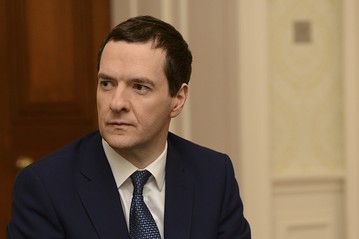|
this article originally appeared on theguardian.com
George Osborne has launched a crackdown on tax avoidance by multinational technology firms such as Google and Amazon, by imposing a 25% levy on profits which are generated in Britain but “artificially shifted” abroad. Dubbed “the Google tax”, the new levy was announced in the chancellor’s autumn statement alongside a move to punish banks for losses incurred during the global financial crisis. Responding to outrage about the minimal contributions big corporations make to European governments, the Treasury is targeting Silicon Valley companies such as Google, Amazon and Apple, but the measures will reach beyond technology to high street chains such as Starbucks. “We will make sure that big multinational businesses pay their fair share,” Osborne said. The tax is intended to raise more than £1bn over the next five years by tackling aggressive avoidance, while an unexpected strike against banks will raise another £4bn over the same period by reducing their ability to use losses racked up during the crisis to reduce tax payments now. Labour MP and tax campaigner Margaret Hodge welcomed the strike against Silicon Valley, but experts said the estimated £300m a year in extra revenues was just a fraction of the real profits multinationals are making in Britain. The rules for the Treasury’s “diverted profits tax” will be published in draft legislation on 10 December and introduced in April 2015. They are designed to hit companies that use artificial structures to minimise UK profits and therefore lower their UK tax bills. The rate is 5% higher than next year’s UK corporation tax rate of 20%, suggesting the chancellor hopes companies will choose to dismantle complex structures that divert profits to low-tax nations such as Luxembourg and Ireland, and choose to pay HM Revenue and Customs. “The chancellor said this will raise a billion over five years, but ultimately this is a tiny proportion of the profits the multinationals he has in mind are generating,” said Toby Ryland, a partner at accountants HW Fisher & Company. “In reality, many of the UK’s double tax treaties with other countries dictate where profits can be taxed. Sweeping measures like this often come to nothing. The chancellor has made the right noises, but most multinationals will be able to side-step these new rules without breaking into a sweat.” Google paid just £20m tax in the UK last year. But its actual British revenues were £5.6bn. The group as a whole has a profit margin of 20%, suggesting the company’s real profits in the UK could have been as high as £1.2bn. Taxed at the proposed 25% rate, this would deliver £280m a year in revenues for the Treasury from just one company. But the government expects to collect no more than £360m a year from the diverted profits tax. Click here to read the entire article from theguardian.com source;
0 Comments
Leave a Reply. |
Archives
July 2024
|
Love You Dreaddi | Stopwatch Creative | Colaeb | It's Bigger Than Business Podcast | Terms of Use | Submit | Est. 2014


